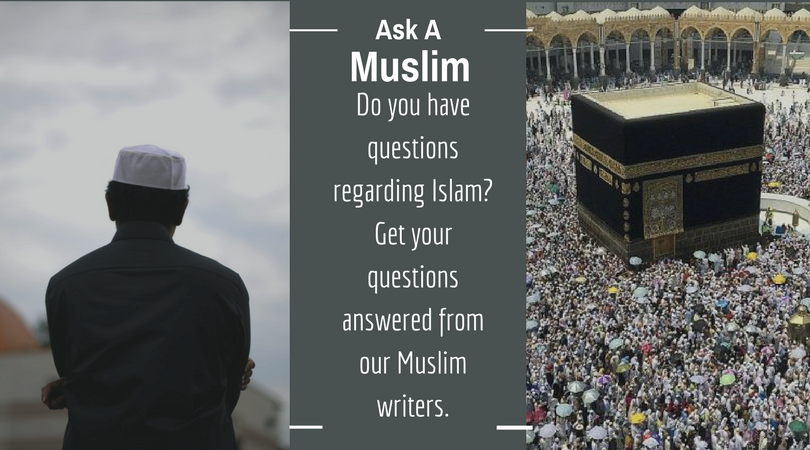Ask A Muslim: Memorizing the Quran
What do you want to Ask a Muslim? Submit your questions online or fill out the form below.
Do I have to memorize the Quran before I can pray the Namaaz?
Response by Maimoona Harrington: Fulfilling Your Prayer
No, you do not have to memorize whole Quran before you can pray (Salah-Namaz). In order to fulfill your prayer, one is required to memorize the first chapter of the Quran called, Al-Fatiha (The Opening) containing seven verses followed by minimum three verses in some units. These three verses can be from any chapter of the Quran. In other elements of the prayer like prostration, bowing, sitting up before bowing, kneeling one utter word of praises for the Almighty God and they are very short. For example: سبحان ربي العظيم (“Glory be to my Lord, the Most Magnificent”), three times or more.
الَّذِيۡنَ يُؤۡمِنُوۡنَ بِالۡغَيۡبِ وَ يُقِيۡمُوۡنَ الصَّلٰوةَ وَمِمَّا رَزَقۡنٰهُمۡ يُنۡفِقُوۡنَۙ
For those who believe in the existence of that which is beyond the reach of perception, who establish Prayer and spend out of what We have provided them. (Quran Chapter 2: Verse 3)
Quran has 114 chapters, and the longest chapter of the Quran contains 286 verses, called Al-Baqarah (The Cow). Some of the short chapters are listed below.
An-Nasr The Help 3 verses
Al-Asr The Time 3 verses
Al-Kawthar The Abundance of Good 3 verses
Al-Ikhlas The Unity 4 verses
Quraysh Quraish 4 verses
This is the basics of fulfilling a prayer (Namaz). All sects have consensus on this except minor variations. Daily five time prayers are our meetings with our Creator. While fulfilling the obligatory requirements, one can speak to their Creator as they like and, in any language, they want to. Prostration (Sujood) is one of those beautiful times. One can praise their Lord and say or share whatever they want to, then it’s only between them and their Creator.
I am not a religious scholar. I tried to answer this question with the best of my knowledge and understanding of Islam as a Muslim.
Response by Naghmana Ahmed-Sherazi: Learning The Daily Prayers
One does not have to memorize the whole Quran before starting your daily prayers/namaaz/salah once you have taken your Shahadah (become a Muslim). Prayers are mandatory five times a day for boys starting age 12 and girls starting age 11. In preparation to starting their five times daily prayers, children are taught verses from the Quran. Usually, the actual format of the prayer is taught from the beginning — for those of us who do not speak or know Arabic, there are books available that detail the entire prayer.
If you want to learn fast, and are able to go regularly to the mosque, I suggest read the book, understand the content. You will need a mentor, so ask a family member, a sister at the mosque that you go to frequently, or speak with the Imam, as they may be able to assign you to a class or assign someone to help you, and most importantly, follow the imam during namaaz to learn the rituals. Each prayer has different number of sets (rakaat); learn the basics and if you get a book with phonically detailed script, try to memorize those prayers.
The last parah/juz (#30 in the Quran), the four ‘Qul’ as they are popularly known are taught to children in preparation for their starting namaaz. If you would like to look them up they are: Surah Ikhlaas, surah Falaq, surah Naas and surah Kafiroon. These are short and can be used to say any set of four rakaat, and can be used over and over again. So if you memorize the actual namaaz (beginning with surah Fateha), the four Qul, ayat-ul-Kursi, and any one of the durood, you will be fine.
Those of us who never learnt to read Arabic or speak it, find the words and pronunciation daunting, and it can be a deterrent to becoming regular in your prayers. I believe Allah looks at intent. One of my friends actually never was able to memorize the surahs; till this day she says her namaaz in English. This is a very alien thought to some folks, and many tell her she needs to apply herself more and try to learn, so she has learnt not to share, but this enables her to say her prayers at the least. I would caution you though, that once you get into a habit, it is hard to break it, and if you begin as you mean to go on. Follow the namaaz at the mosque in person/Zoom whatever method is safely being used, and then also find a mentor among the local sisters’ group so you have support and can learn from them.
I truly appreciate your asking this question, and not knowing your circumstances have given a very broad and generalized overview. I hope you can connect with someone who would be available locally, and perhaps in person, to offer learning and advise more in depth than I was able to provide. I wish you the very best. These are difficult tasks but the rewards are great; once you have made up your mind, you can do it. I pray Allah makes it easy for you, and provide you with the knowledge you seek, and bring you through this time with grace and love – ameen.









